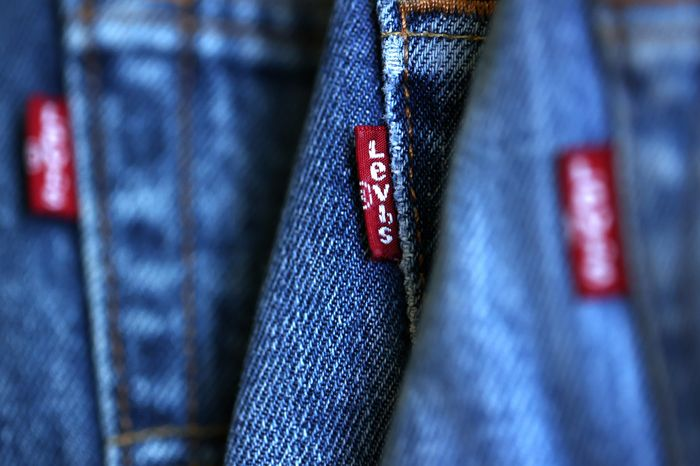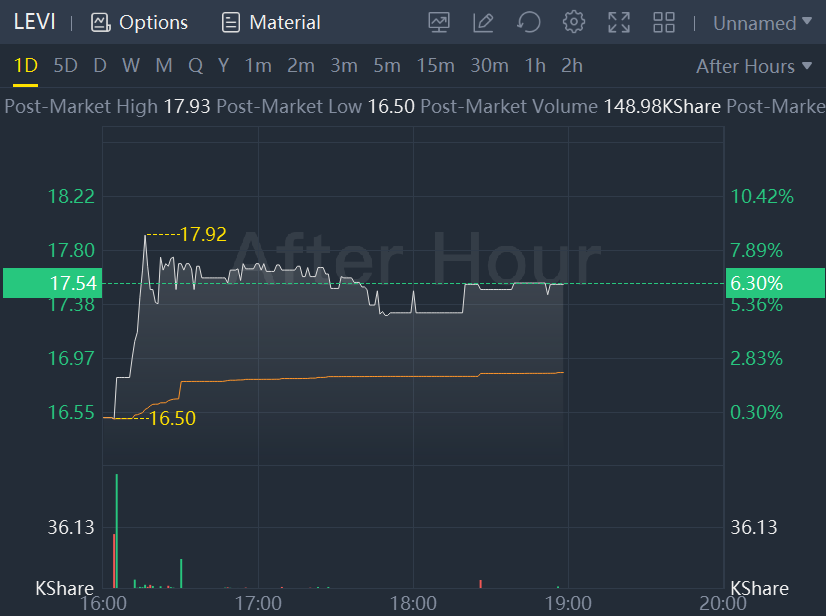Executives note 'strong growth in company-operated stores in the Americas and Asia, offsetting a decline in Europe primarily due to store closures in Russia'

Shares of Levi Strauss & Co. rallied after hours on Wednesday after the jeans maker reported fourth-quarter results and a full-year sales forecast that beat expectations, as a strong performance at its own stores clashed with a harsher foreign-exchange backdrop.
The company reported fourth-quarter net income of $151 million, or 38 cents a share, compared with $153 million, or 37 cents a share, in the same quarter last year. Sales slipped 6% to $1.59 billion, compared with $1.69 billion in the prior-year quarter.
On an adjusted basis, Levi Strauss (LEVI) earned 34 cents a share, compared with 41 cents in the same quarter last year. Analysts polled by FactSet expected adjusted earnings per share of 29 cents, on sales of $1.574 billion.
Sales, however, rose when factoring out currency fluctuations, helped by demand online and at the company's own stores. Levi's executives noted "strong growth in company-operated stores in the Americas and Asia, offsetting a decline in Europe primarily due to store closures in Russia." Gains within that direct-to-consumer unit offset weaker demand among the retailers that sell the company's clothing.
Levi's said it expected full-year 2023 sales of between $6.3 billion and $6.4 billion, with adjusted earnings per share of between $1.30 and $1.40. FactSet forecast sales of $6.27 billion and earnings per share of $1.35.
Shares jumped 6.3% after hours on Wednesday.
With higher prices still gouging shoppers, Levi's faces questions from analysts over whether jeans are more vulnerable to a so-called "trade-down," when customers seek cheaper alternatives. And as customers return to the office and more formal occasions after two years of pandemic-related lockdowns, there are some signs that demand for jeans has given way to demand for chinos, khakis and cargo pants.
BofA analysts, in a note last week, said they expected last year's big markdowns on clothing to stretch through the spring, potentially spurring consumer demand but hurting company profit. Retailers cut prices on clothes last year, as a jump in more basic costs left many without extra cash to spend on apparel.
Levi's management has said they remained confident about the "long-term trend of casualization" that took off earlier in the pandemic, which left more people stuck at home.
Levi's stock is down around 21% over the past 12 months. Over that time, the S&P 500 Index has fallen 8%.
-Bill Peters
(END) Dow Jones Newswires
January 25, 2023 16:47 ET (21:47 GMT)
Copyright (c) 2023 Dow Jones & Company, Inc.

